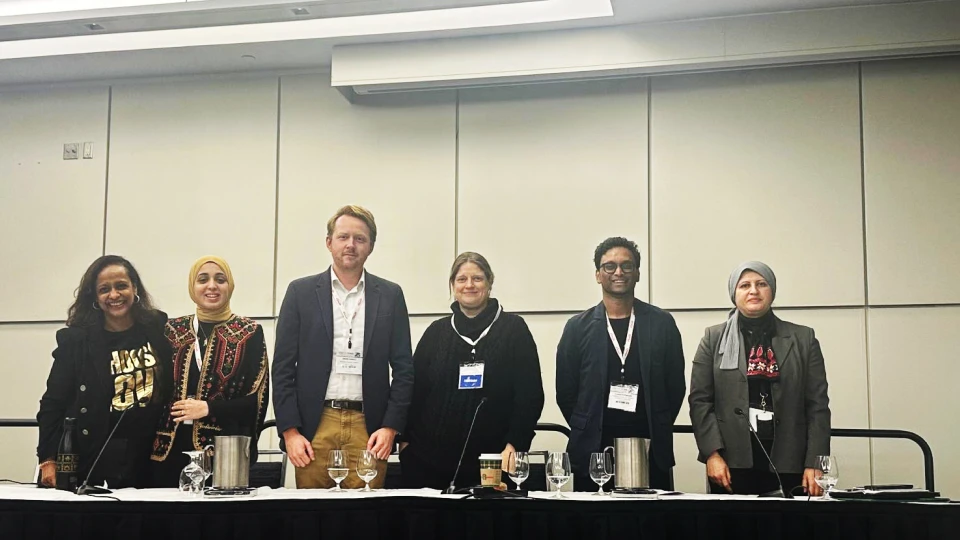
TORONTO, CANADA – 11 NOVEMBER 2025 | The Jameel Institute–Realtime Intelligent Support for Emergencies (Jameel Institute-RISE), a digital initiative transforming humanitarian response for those injured, malnourished or at risk of disease in conflict zones, held a symposium on data modelling for crisis-affected populations at the American Society of Tropical Medicine and Hygiene (ASTMH) 2025 annual meeting today.
Titled 'Bridging academia and humanitarian response: Data, modelling and policy for crisis-affected populations', the symposium brought together experts in data science, disease control and humanitarian operations to explore how modelling informs crisis decision-making and the scientific community’s role in response.
The session addressed:
The symposium also introduced the Jameel Institute Crisis Vaccination Planner, a data modelling platform that enables humanitarian practitioners to model the impacts of vaccination discontinuation in crises. The planner will be soft-launched in December 2025.
From armed conflicts to natural disasters, crises drive health emergencies, challenging disease control and public health efforts. Traditional approaches often fall short in addressing fast-moving crises, leading to vaccine-preventable and epidemic disease outbreaks, delayed detection and insufficient trauma care.
Integrating real-time data, outbreak analytics and epidemiological modelling is crucial for timely and effective humanitarian interventions.
Launched in 2024, Jameel Institute–RISE is led by the Jameel Institute at Imperial College London and the London School of Hygiene and Tropical Medicine (LSHTM), and supported by Community Jameel.
Initially focused on the ongoing emergencies in Gaza and Sudan, Jameel Institute–RISE delivers critical data – including on traumatic injuries, malnutrition, mortality and vaccination planning – to humanitarian organisations and policymakers amid crises to help them effectively prioritise aid response.
Partners in the initiative include the World Health Organization, the United Nations Office for the Coordination of Humanitarian Affairs, Médecins Sans Frontières and the Geneva Water Hub.
The symposium was led by Bhargavi Rao, co-principal investigator of the Jameel Institute–RISE initiative and clinical associate professor in humanitarian health at LSHTM.
The ASTMH annual meeting is the premier international forum for the exchange of scientific and clinical advances in tropical medicine and global health, convening researchers, clinicians, policymakers and humanitarian actors for five days of evidence and debate.
Past editions have featured field-shaping moments – from Bill Gates' malaria funding pledge to the landmark dengue control results from Wolbachia trials.
The 2025 meeting takes place in Toronto, Canada, from 9 to 13 November 2025.